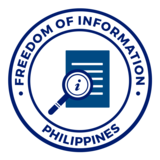About PCED
Established on May 13, 1974, the Philippine Center for Economic Development (PCED), through Presidential Decree (PD) No. 453, was tasked with the key role of providing financial and moral support to the research, teaching, training, and other programs of the UP School of Economics (UPSE). This enables the UPSE to carry out its academic functions on a broader scale via the PCED while preserving a significant level of autonomy. The emphasis remains on faculty initiative as the primary avenue for fostering proficient training and research.
Charter
PRESIDENTIAL DECREE No. 453
CREATING THE PHILIPPINE CENTER FOR ECONOMIC DEVELOPMENT
WHEREAS, the country’s continuing and accelerated efforts at national development require an adequate research base for planning and policy formulation;
WHEREAS, more rapid national development further demands a steady and expanding supply of economic technicians both within and outside government who are specialists in various areas of technical work;
WHEREAS, a continuing interaction between government officials and academic research workers in mutually beneficial and in the interest of national development;
WHEREAS, to meet the above-mentioned demand it is necessary to provide adequate financial support so that existing programs for the development of qualified manpower and research on economic development can be strengthened, improved, and expanded;
NOW, THEREFORE, I, FERDINAND E. MARCOS, President of the Philippines, by virtue of the powers vested in me by the Constitution, do hereby decree and order the following to be part of the law of the land:
Section 1. Creation of the Philippine Center for Economic Development. There is hereby created and established a Philippine Center for Economic Development, which shall be located at the University of the Philippines, with a distinct corporate personality. The function of the Center is to give financial and moral support to the research, teaching, training and other programs of theSchool ofEconomics of the University of the Philippines. The Center shall formulate a program for financing the endowment of faculty chairs.
The School of Economics nevertheless remains under the effective academic and administrative supervision of the University of the Philippines System. The School will undertake its academic function at a larger scale to be made possible by the financial support of the Center, and in so doing will be assisted by the Advisory Committee of the Center; but the School will maintain a high degree of independence, relying on faculty initiative as the prime means of developing competent training and research. This shall pertain to all of the following functions of the School:
(a) To conduct and engage in research work and studies oriented towards national policy and the needs of national development in the field of economics, particularly in the areas of
(1) monetary and fiscal policy;
(2) tariff and trade policy;
(3) industrial and agricultural policy;
(4) regional economic development;
(5) long, medium, and short-term economic planning techniques;
(6) manpower and employment;
(7) economic studies on education, health and social development, in general; and
(8) statistical programs and policy;
(b) To undertake training programs designed to provide the government and the nation as a whole of planners, analysts and economic statisticians, or in general, of technicians skilled and knowledgeable in the problems of economic development;
(c) To serve as the medium for bringing together experts and specialists in other disciplines to conduct studies and investigations and engage in interchange of ideas so as to bring in their knowledge and experience to bear on common problems with a view to evolving fresh ideas and approaches that could be effectively applied to economic development;
(d) To engage in the publication of the results of research.
Section 2. Powers. The Center shall have the following powers:
(a) To adopt, alter and use a corporate seal;
(b) To collect, receive and maintain a fund of funds, from government appropriations, and from donations, grants, gifts, bequests, loans from domestic or foreign lenders or other sources of income, and to apply the income and principal thereof to the promotion of its aims and purposes;
(c) To acquire, purchase, pledge, own, hold, operate, develop, lease, mortgage, pledge, exchange, sell, transfer or otherwise, in any manner permitted by law, real and personal property of every kind and description or any interests therein as may be necessary to carry out its purposes;
(d) To raise or borrow money from domestic or foreign sources for the purposes of the Center and to do any and all acts required and/or necessary under the law to effect the same;
(e) In furtherance of its purposes, to extend financial assistance and to enter into, make, perform and carry out, or cancel and rescind contracts of every kind and for any lawful purpose with any person, firm, association, corporation, syndicate, domestic or foreign, or others in which it has a lawful interest;
(f) To invest funds, as it may be able to obtain from donations, grants, loans or appropriations, the returns of which the corporation uses to subsist and carry on the activities and purposes for which it was formed;
(g) In general, to carry on any activity and to have and exercise all of the powers conferred by law on a private or government-owned or controlled corporation; and to do any and all of the acts and things herein set forth to the same extent as juridical persons could do, and in any part of the world, as principal, factor, agent, or otherwise, either alone or in syndicate or otherwise in conjunction with any person, entity, syndicate, partnership, association or corporation, domestic or foreign.
Section 3. Board of Trustees. The affairs of the Center shall be managed by a Board of Trustees which shall be composed of nine members as follows:
(a) The Director-General of the National Economic and Development Authority (NEDA), as Chairman;
(b) The Executive secretary;
(c) The Secretary of Industry;
(d) The Secretary of Finance;
(e) The Commissioner of the Budget;
(f) The Governor of the Central bank;
(g) The President of the University of the Philippines;
(h) The Dean of the School of Economics;
(i) Two members to be appointed by the President of the University of the Philippines, upon recommendation of the Dean of the School of Economics, shall serve for a term of three years and may be reappointed.
Section 4. Functions and Responsibilities of the Board of Trustees. The Board shall have the following functions:
(a) To approve and authorize on an annual basis a program for financial assistance to the School of Economics;
(b) To appoint the Executive Director and the other officers and staff of the Center, whose number, organizational structure and compensation shall be determined by the Board upon recommendation of the Executive Director;
(c) to constitute themselves or their representatives into an Advisory Committee whose functions shall be to make recommendations to the School with respect to the latter’s academic and other programs;
(d) To promulgate rules and regulations necessary for the discharge of its powers and functions and the internal organization and operations of the Center;
(e) To monitor and review periodically the programs and projects of the Center.
Section 5. Executive Director of the Center. The Executive Director shall be the executive officer of the Center and shall receive such salary and renumeration as may be determined by the Board of Trustees. He shall have the following powers and duties:
(a) To have control and supervision over the personnel, staff, operations and internal administration of the Center in accordance with existing laws and the rules and regulations promulgated by the Board of Trustees;
(b) To recommend to the Board of Trustees such policies and measures which he deems necessary for the effective exercise and discharge of the powers and responsibilities of the Center;
(c) To submit an annual report to the Board of Advisers on the operations, the status of the programs funded by, and the financial condition of, the Center, including a recommendation for its budget for the ensuing year.
Section 6. Endowment Fund. To provide a source for the funding of programs and projects of the Center, there is hereby established and Endowment Fund which shall be self-sustaining and shall consist of contributions, donations, bequests, grants and loans from domestic and/or foreign sources, government subsidy appropriations and other income accruing from the operations of the Center. For the initial organizational and operational requirements of the Center, there is hereby appropriated out of any fund in the National Treasury or other sources not otherwise appropriated the sum of Five Million Pesos (P5,000,000.00) and an annual amount of Two Million Pesos (P2,000,000.00) shall continue to be appropriated for six years to support the operations of the Center.
The Endowment Fund shall be administered as a trust with the Board of Trustees of the Center as trustee thereof, provided that the principal of the fund shall not be impaired and that only the earnings thereof shall be available for expenditure.
Section 7. Finance Committee. The Board of Trustees shall constitute a Finance Committee, composed of at least three members, to be headed by a member of the Board of Trustees, which shall administer the Endowment Fund for, and shall be responsible directly to, the Board of Trustees. It shall advise and make recommendation to the Board of Trustees on matters pertaining to the funding aspect of programs proposed to be funded by the Center, on matters pertaining to maintaining the integrity of the Endowment Fund.
Section 8. Applicability of Procurement Restrictions. Requirements and restrictions under existing laws and regulations on procurement of supplies and equipment and on contracting applicable to government-owned or controlled corporations shall not apply to the Center.
Section 9. Appointments and Discipline of Personnel. Any provision of law to the contrary notwithstanding, appointments, compensation and discipline of the personnel in the staff of the Center shall be in accordance with the rules and regulations promulgated by the Board of Advisers and shall be exempt from the Civil Service Law, laws, rules and WAPCO; Provided, that any government retiree employed in the Center shall not be required to reimburse or refund any gratuity received from the government nor shall any pension or annuity to which he is entitled be suspended or reduced on account of his employment in the Foundation.
Section 10. Exemption from Taxes. Any provision of existing laws to the contrary notwithstanding, any donation, contribution, bequest, subsidiary or financial aid which may be made to the Center shall be exempt from taxes of any kind, and shall constitute allowable deductions in full from the income of the donors or givers for income tax purposThe Center, its assets, acquisitions, income, and its operations and transactions shall be exempt from any and all taxes, fees, charges, imposts, licenses and assessments, direct or indirect imposed by the Republic of the Philippines or any of its political subdivision or taxing authority thereof, except import taxes, duties and fees.
DONE in the City of Manila, this 13th day of May, in the year of Our Lord, nineteen hundred and seventy-four.
(Sgd.) FERDINAND E. MARCOS
President of the Philippines
By the President:
(Sgd.) ALEJANDRO MELCHOR
Executive Secretary
Source: Official Gazette
Vision and Mission
Mission
Through the support of the center, a University of the Philippines School of Economics (UPSE) that is able to perform its academic functions at a larger scale, ultimately contributing to the country’s continuing and accelerating efforts at national development.
Vision
To give financial and moral support to the research, teaching, training and other programs of the School of Economics of the University of the Philippines.
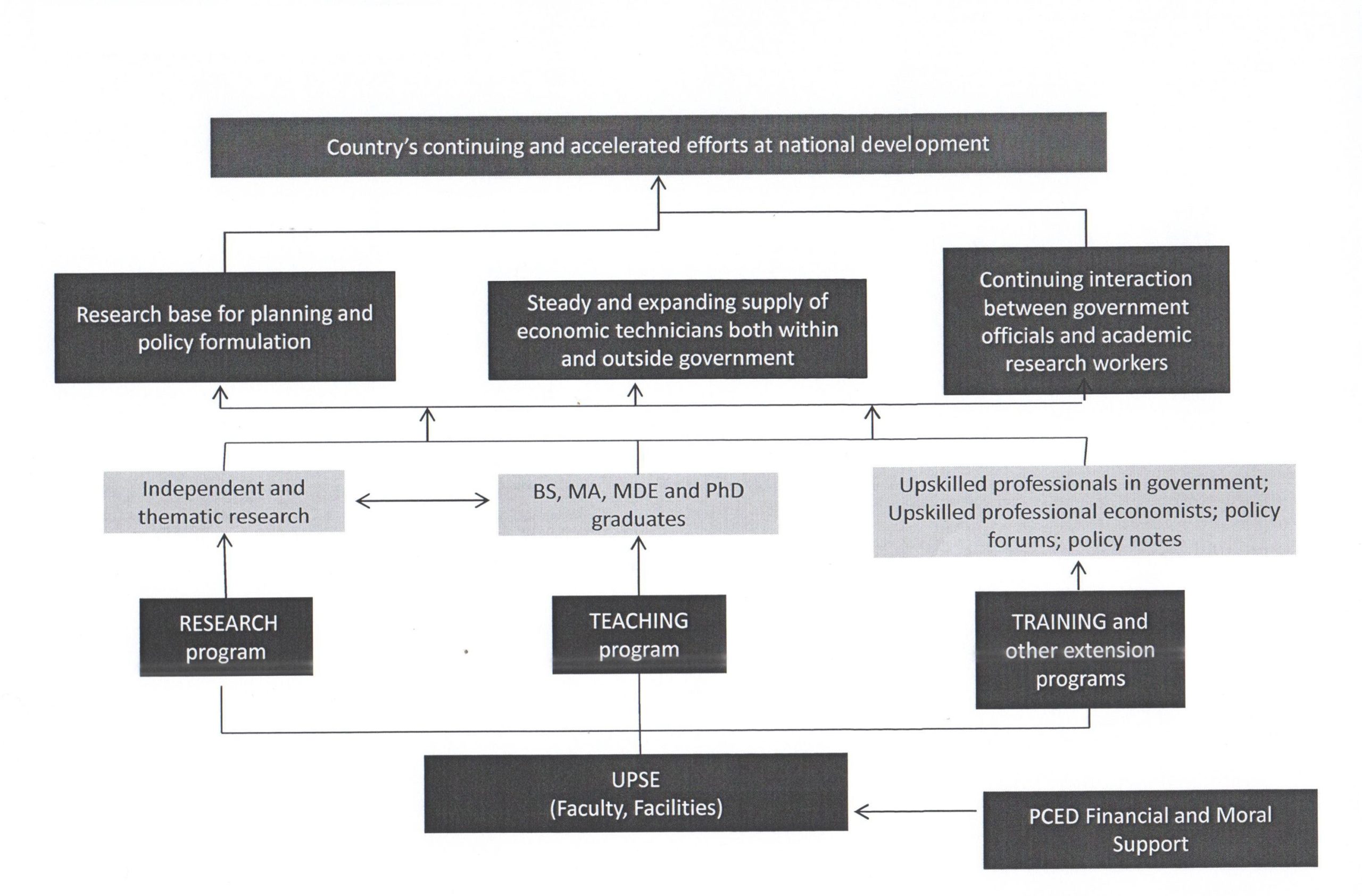
Board of Trustees
The PCED is governed by a Board of Trustees consisting of the following:
| Chairman |
|||
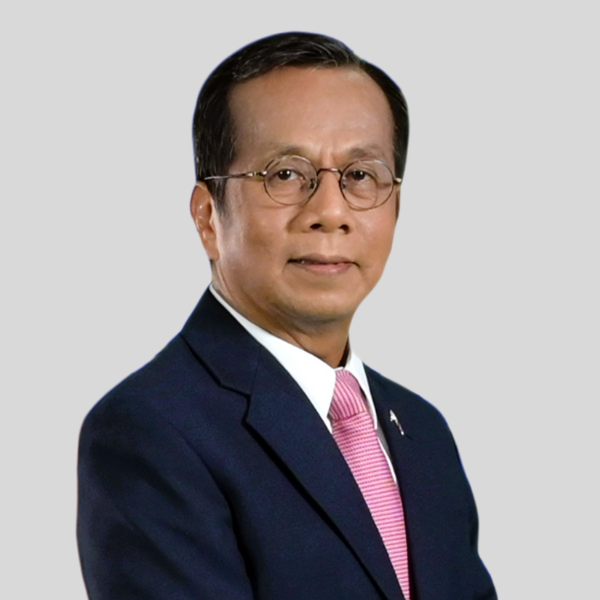 |
Hon. Arsenio M. Balisacan |
||
| Members |
|||
| Hon. Ma. Cristina Aldeguer-Roque Secretary Department of Trade and Industries |
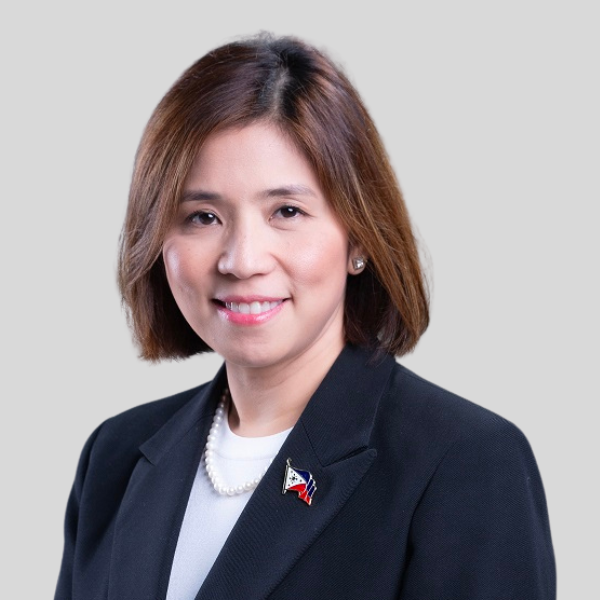 |
Hon. Amenah F. Pangandaman Secretary Department of Budget and Management |
|
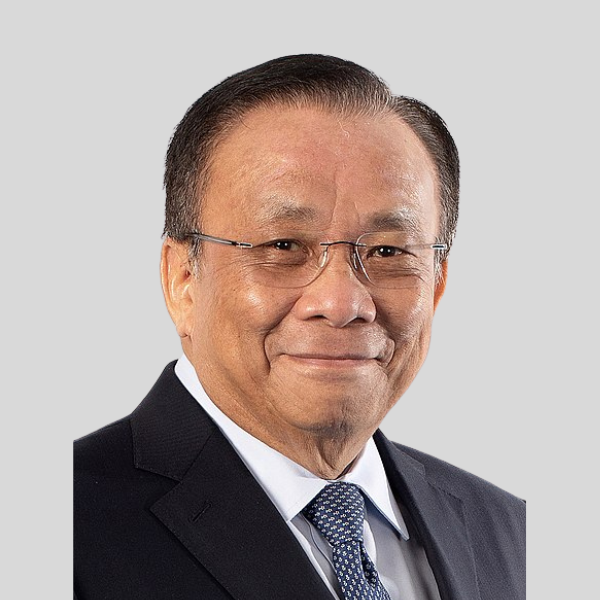 |
Hon. Lucas Bersamin Executive Secretary |
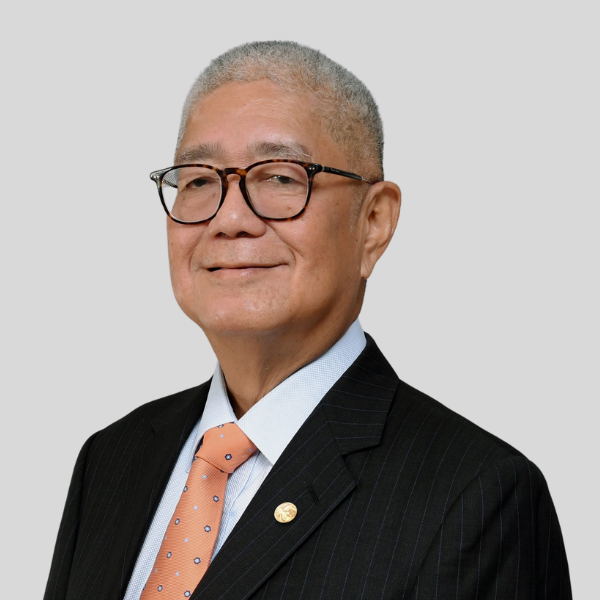 |
Hon. Eli M. Remolona, Jr. Governor Bangko Sentral ng Pilipinas |
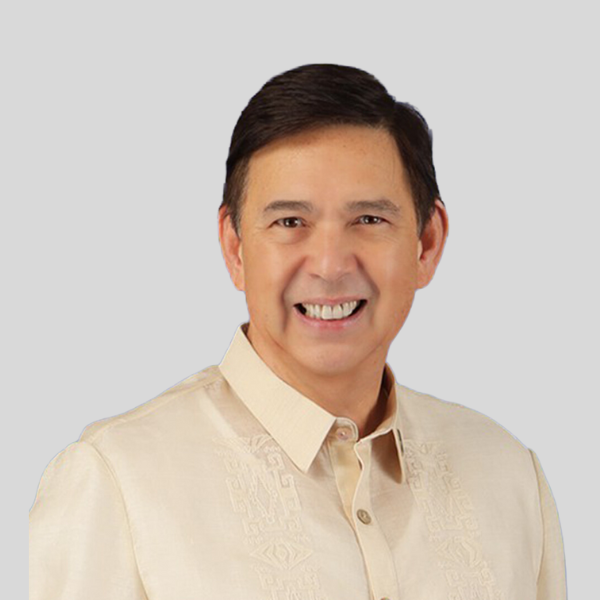 |
Hon. Ralph G. Recto Secretary Department of Finance |
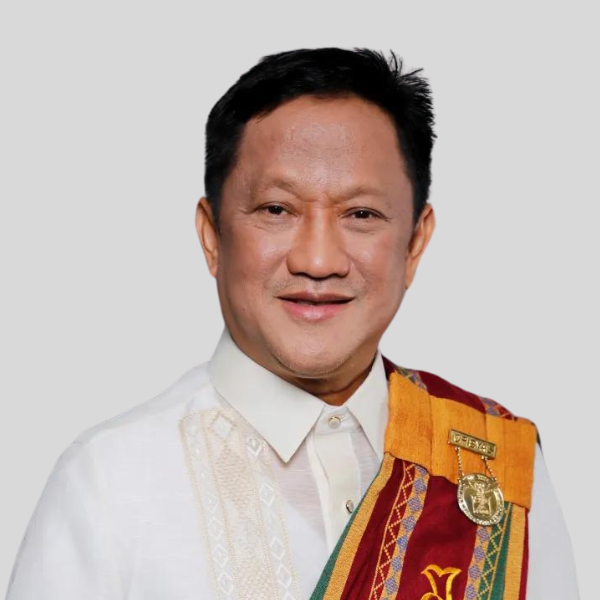 |
Hon. Angelo A. Jimenez President University of the Philippines |
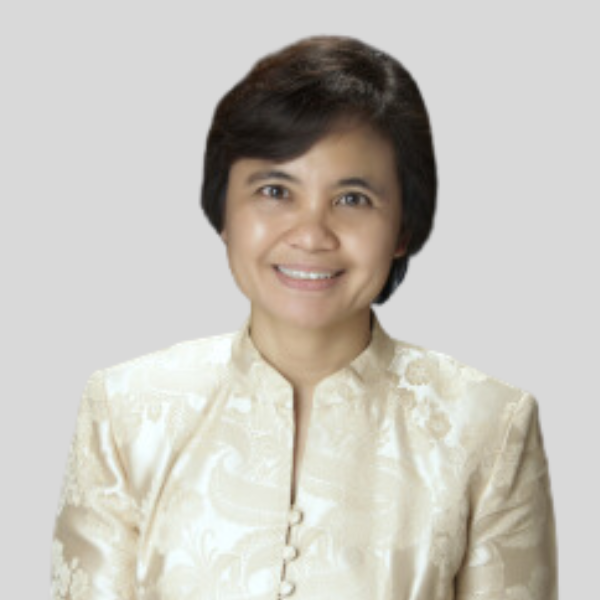 |
Hon. Ma. Joy V. Abrenica Dean UP School of Economics |
||
In addition, two members may be appointed by the President of University of the Philippines, upon recommendation of the Dean of the School of Economics. (Section of 3 of P.D. 453).
Management and Staff
Management & Staff
Office of the Executive Director
Ma. Joy V. Abrenica, PhD
Executive Director
Room No. 202
executivedirector@pced.gov.ph
Tel +63 2 89818500 local 3483
Rowena V. Alvarez, Administrative Assistant III
Research Division
Karl Robert L. Jandoc, PhD
Division Chief III
Research Division
Room No. 232
Tel +63 2 89818500 local 3478
Gil Mallari, Administrative Assistant II
Special Projects Division
Dr. Laarni E. Guillermo, PhD
Division Chief III
Special Projects Division
Room No. 101
specialprojects@pced.gov.ph
Tel +63 2 89818500 local 3477
Graziella Mercado, Administrative Officer V
Finance and Administration Division
Sarah Lynne S. Daway-Ducanes, PhD
Division Chief lll
Room No. 312
Tel +63 2 89818500 local 3481
Ernie Ulanday, Accountant III
Gerlie Paloma, Administrative Officer III
Jerry Plazos, Administrative Assistant III
Judy Vi Avila, Administrative Assistant II
Grace Anne Macapagal, Administrative Assistant II
Roberto Barcelo, Administrative Aide IV
Rowaniello Eutiquio Gala, Administrative Aide IV
Alberto Calaguas, Administrative Aide III
Service Charter
SERVICE CHARTER
The Philippine Center for Economic Development (PCED) was created on 15 March 1974 by Presidential Decree (PD) No. 453 with the primary responsibility of giving “…financial and moral support to the research, teaching, training, and other programs of the School of Economics, University of the Philippines.” Through the PCED, the UPSE undertakes its academic functions at a larger scale while still maintaining a high degree of independence, relying on faculty initiative as the prime means of developing competent training and research.
PCED was created to support the following functions of the UPSE:
1. to conduct and engage in research work and studies oriented towards national policy and the needs of national development in the field of economics, particularly in the
areas of:
a. monetary and fiscal policy;
b. tariff and trade policy;
c. industrial and agricultural policy;
d. regional economic development;
e. manpower and employment;
f. economic studies on the environment, energy, health, education, and
development in general;
g. statistical programs and policy; and,
h. long-, medium-, and short-term economic planning;
2. to undertake training programs designed to provide government and the nation as a whole with planners, analysts and economic statisticians; and in general, with
technicians skilled and knowledgeable in the problems issues in economic development;
3. to serve as the venue and initiator to bring together experts and specialists in other disciplines to conduct studies and investigations, and to engage in the interchange
of ideas so as to bring their knowledge and experience to bear on common problems, with a view towards the creation of fresh ideas and approaches that could be effectively applied to economic development; and
4. to engage in the publication of the results of research.
Mandate and Functions
PD 453 specifically indicates that the PCED will financially support the School of Economics to accomplish the following functions:
– the conduct of economic research oriental towards national policy and the needs of national development;
– the conduct of training programs designed to provide the government and the nation of planners, analysts, and economic statisticians (or generally, technicians skilled and knowledgeable in the problems of economic development);
– bringing together experts and specialists in other disciplines to conduct studies and exchange ideas to generate fresh ideas and approaches that could be applied to
economic development; and
– the publication of research results.
PD 453 also explicitly states that while the Center will provide support to the School of Economics, the latter “will maintain a high degree of independence, relying on faculty initiative as the prime means of developing competent training and research.”
Mission & Vision
Mission
Through the support of the center, a University of the Philippines School of Economics (UPSE) that is able to perform its academic functions at a larger scale, ultimately
contributing to the country’s continuing and accelerating efforts at national development.
Vision
To give financial and moral support to the research, teaching, training and other programs of the School of Economics of the University of the Philippines.
PCED supported Activities of the UP School of Economics Research As part of its academic functions, the faculty of the UP School of Economics (UPSE) regularly produce discussion papers (DP) and working papers (WP), which are publicly disseminated and shared through forums, discussions and the UPSE website.
Teaching
Through the support of PCED, the UP School of Economics (UPSE) is able to support teaching fellows through PCED scholarship funds and to acquire materials needed for teaching.
Training
PCED has been supporting consultations and roundtable discussions on public issues organized by the UP School of Economics.
Infrastructure support
The support of PCED to the UP School of Economics includes the maintenance and upgrade of the PCED complex in U.P. Diliman which houses the UPSE facilities.
FRONTLINE SERVICES
CLIENTS: Faculty Members of UP School of Economics
Requirements: Enumerated below
Fees: NO FEES
Schedule of Availability of Service: Monday to Friday 8:00 a.m. – 5:00 p.m.
Activity: Application for Research Grant
| Step | Client | Service Provider | Responsible Party | Duration of Activity | Form |
| 1 | Applies for research fund by submitting a letter of request |
Accepts letter and forwards it to the Research committee through the Division Chief for Research |
(Administrative Assistant) | 30 minutes | No form but formal letter of request |
| 2 | Submits research proposal with letter attached. |
Accepts and checks the accuracy and completeness of documents |
(Administrative Assistant) | 15 minutes | No form |
| 3 | Upon the instruction of the DC for Research, communicates by phone to the client that his/her proposal is approved/disapproved. |
(Administrative Assistant) | 5 minutes | No form | |
| 4 | Prepares pro-forma contract and requests the client to sign the contract |
(Administrative Assistant) | 10 minutes | No form | |
| 5 | Facilitates the notarial requirement of the contract and prepares request for the 1st tranche of the grant as indicated inthe contract |
(Administrative Assistant) | 5 minutes | No form | |
| 6 | Upon the instruction of the DC for Research, communicates by phone to the client that contract is available for release. |
(Administrative Assistant) | 5 minutes | No form | |
| 7 | Accepts and checks the accuracy and completeness of documents and forwards to the DC for Research for approval |
(Administrative Assistant) | 5 minutes | No form | |
| 8 | Upon the instruction of the DC for Research, prepares request for payment of the 2nd tranche, disbursement voucher and check. |
(Administrative Assistant) | 20 minutes | ||
| 9 | Communicates by phoneto the client that check is available. |
(Administrative Assistant) | 5 minutes | ||
| 10 | Submits final report as indicated in the contract |
Accepts and checks the accuracy and completeness of documents and forwards to the DC for Research for approval |
(Administrative Assistant) | 5 minutes | No form |
| 11 | Upon the instruction of the DC for Research, prepares request for final payment, disbursement voucher and check. |
(Administrative Assistant) | 20 minutes | ||
| 12 | Communicates by phone to the client that check is available. |
(Administrative Assistant) | 5 minutes |
CLIENTS: Faculty Members of UP School of Economics UP Based-Student Organization and Colleges
Requirements: Enumerated below
Fees: SPECIAL RATES (Rates are indicated in the Request for Use of Facilities and Equipment Form)
Schedule of Availability of Service: Monday to Friday 8:00 a.m. – 5:00 p.m.
Activity: Rental of Facilities for UP Events
| Step | Client | Service Provider | Responsible Party | Duration of Activity | Form |
| 1 | Submits a letter of request for to rent PCED facility/ies |
Accepts and forwards letter to the Division Chief for Administration for approval. |
Processor 1 | 15 minutes | No form |
| 2 | Upon the instruction of the Division Chief for Administration, communicates by phone to the client the approval of the reservation. |
Processor 1 | 15 minutes | ||
| 3 | Fill out reservation form for facility/ies |
Accepts reservation form and computes the required fees |
Processor 1 | 15 minutes | Reservation Form |
| 4 | Pays required fees to the Cashier |
Accepts payment and issues official receipt to the client. |
Processor 1 | 5 minutes |
CLIENTS: Faculty Members of UP School of Economics UP Based-Student Organization and Colleges
Requirements: Enumerated below
Fees: FULL RATES (Rates are indicated in the Request for Use of Facilities and Equipment Form)
Schedule of Availability of Service: Monday to Friday 8:00 a.m. – 5:00 p.m.
Activity: Rental of Facilities
| Step | Client | Service Provider | Responsible Party | Duration of Activity | Form |
| 1 | Fills out Request for Use of Facilities and Equipment Form for use of PCED facilities |
Accepts form and checks the accuracy of information |
Processor 1 | 15 minutes | No form |
| 2 | Computes the rental fee and informs the client of the total cost to rent |
Processor 1 | 15 minutes | ||
| 3 | Upon the instruction of the Division Chief for Administration, communicates by phone the approval of the reservation |
Processor 1 | 15 minutes | Request for payment form |
|
| 4 | Pays required fees to the cashier |
Accepts payment and issues official receipt to the client. |
Processor 1 | 5 minutes | No form to pay; official receipt is issued |
Please let us know your experience dealing with our staff by doing any of the following:
• Send your feedback through e-mail (info@pced.gov.ph) or call us at 9279686 loc 205
• Talk to our Officer of the Day
• By writing a formal letter addressed to the Executive Director
If you are not satisfied with our service, please know that your written or verbal complaints shall immediately be attended to by the Officer of the Day.
THANK YOU for helping us continuously improve our services.

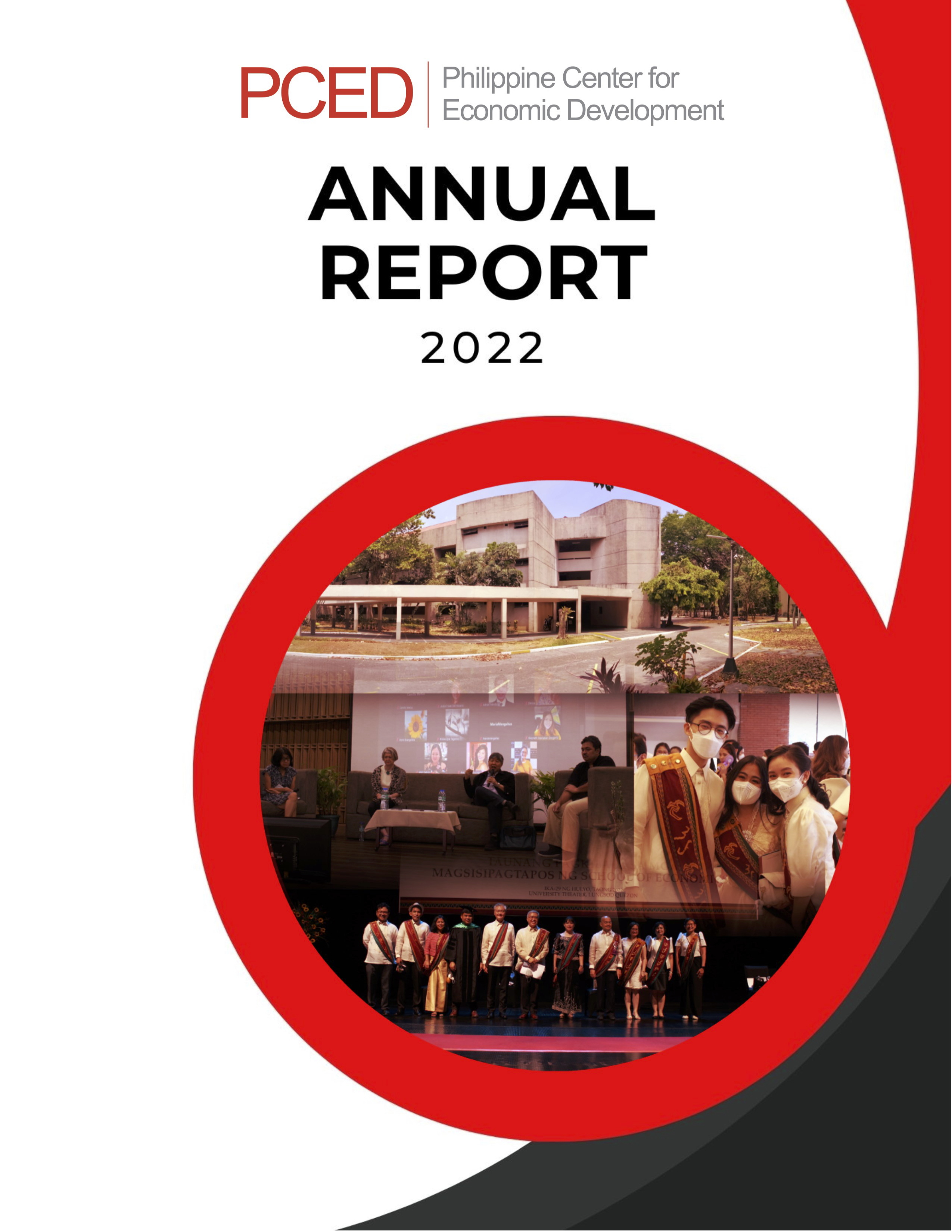 2022 Annual Procurement
2022 Annual Procurement 2021 Annual Procurement
2021 Annual Procurement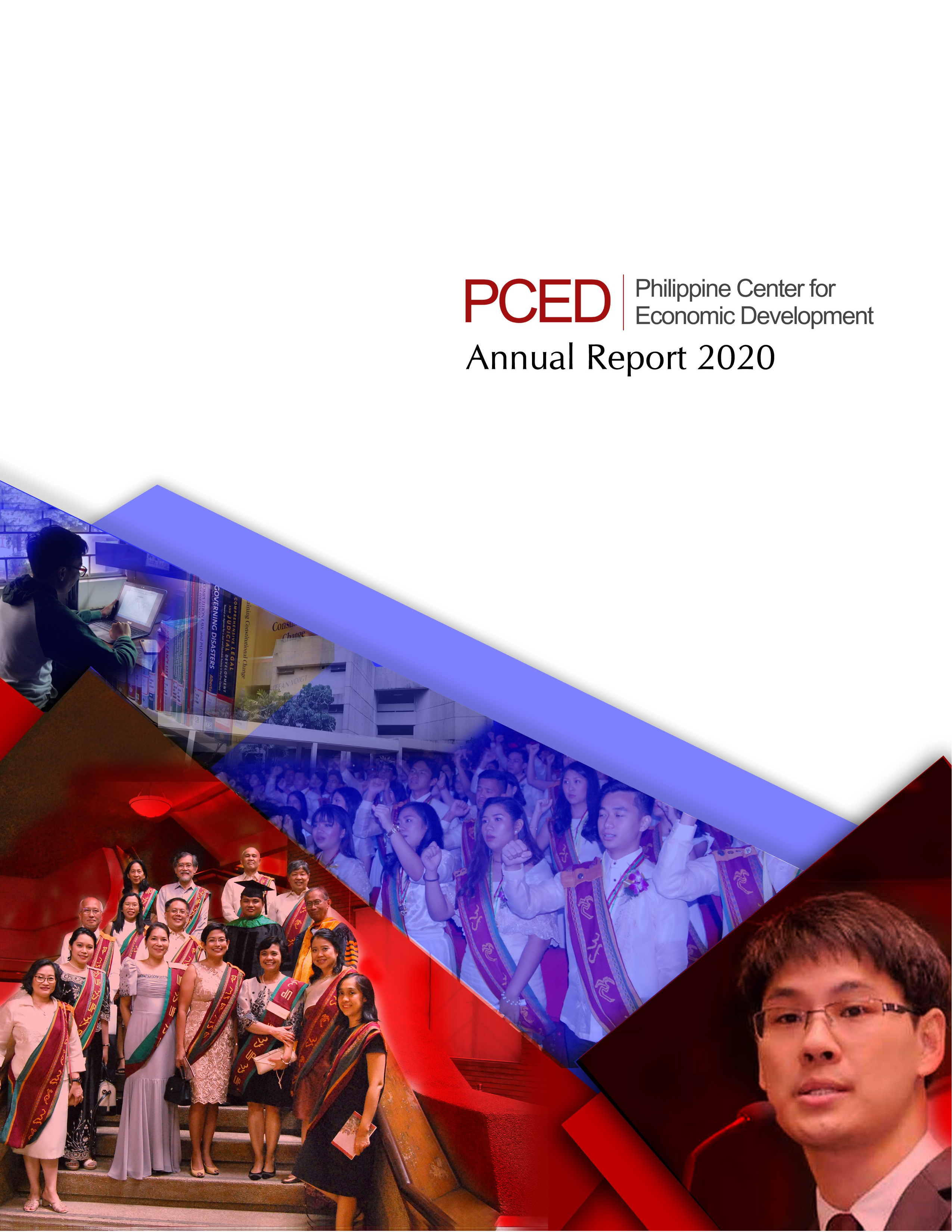 2020 Annual Procurement
2020 Annual Procurement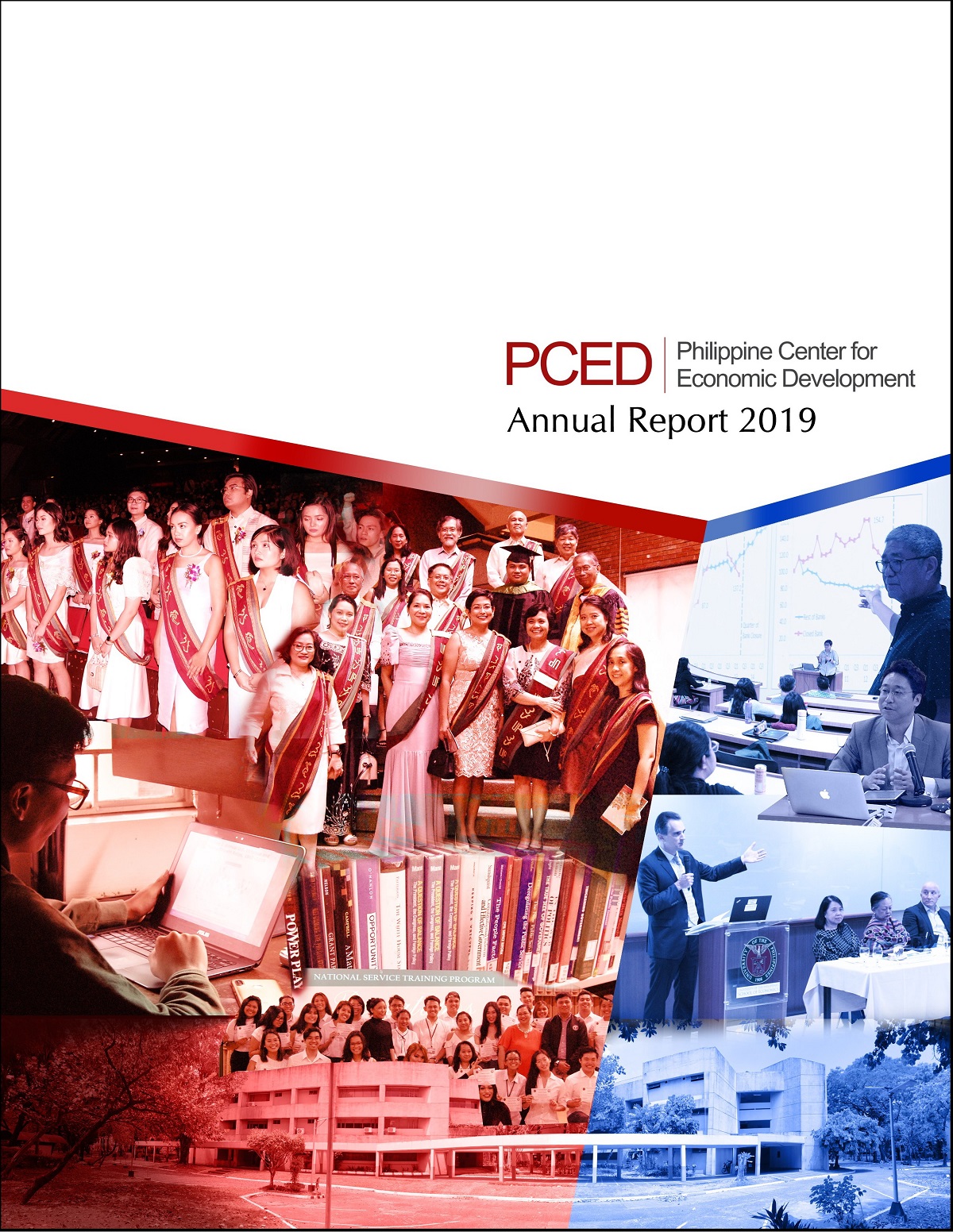 2019 Annual Procurement
2019 Annual Procurement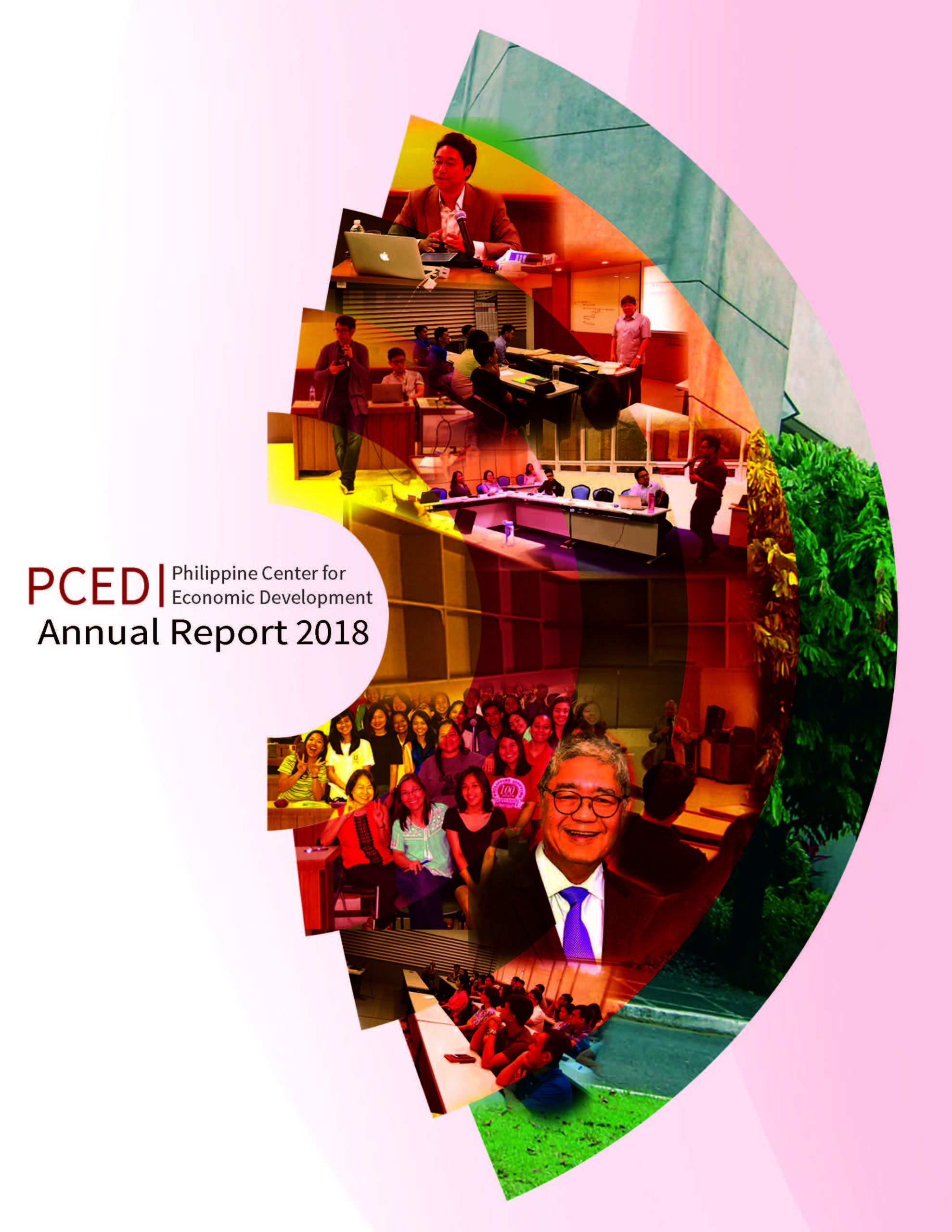 2018 Annual Procurement
2018 Annual Procurement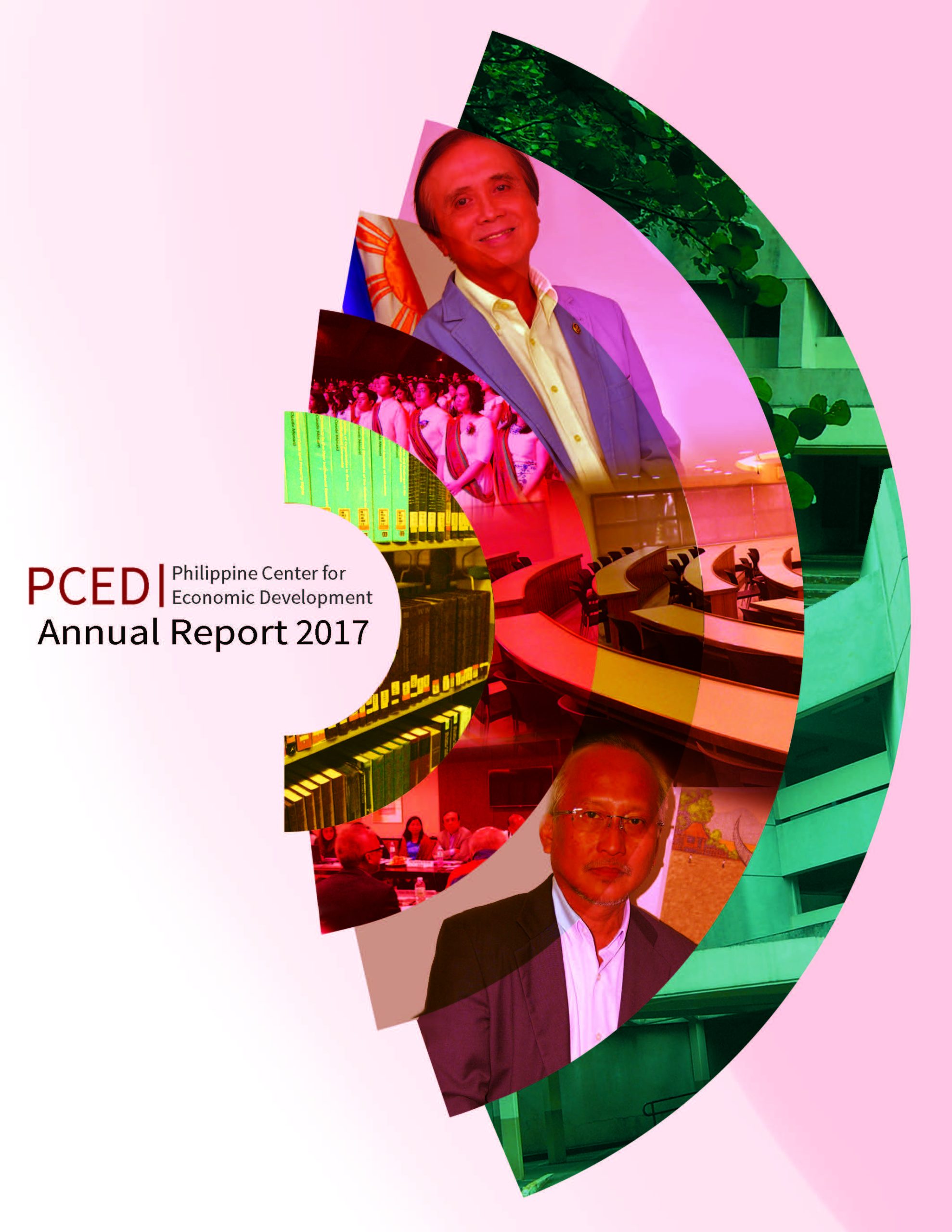 2017 Annual Procurement
2017 Annual Procurement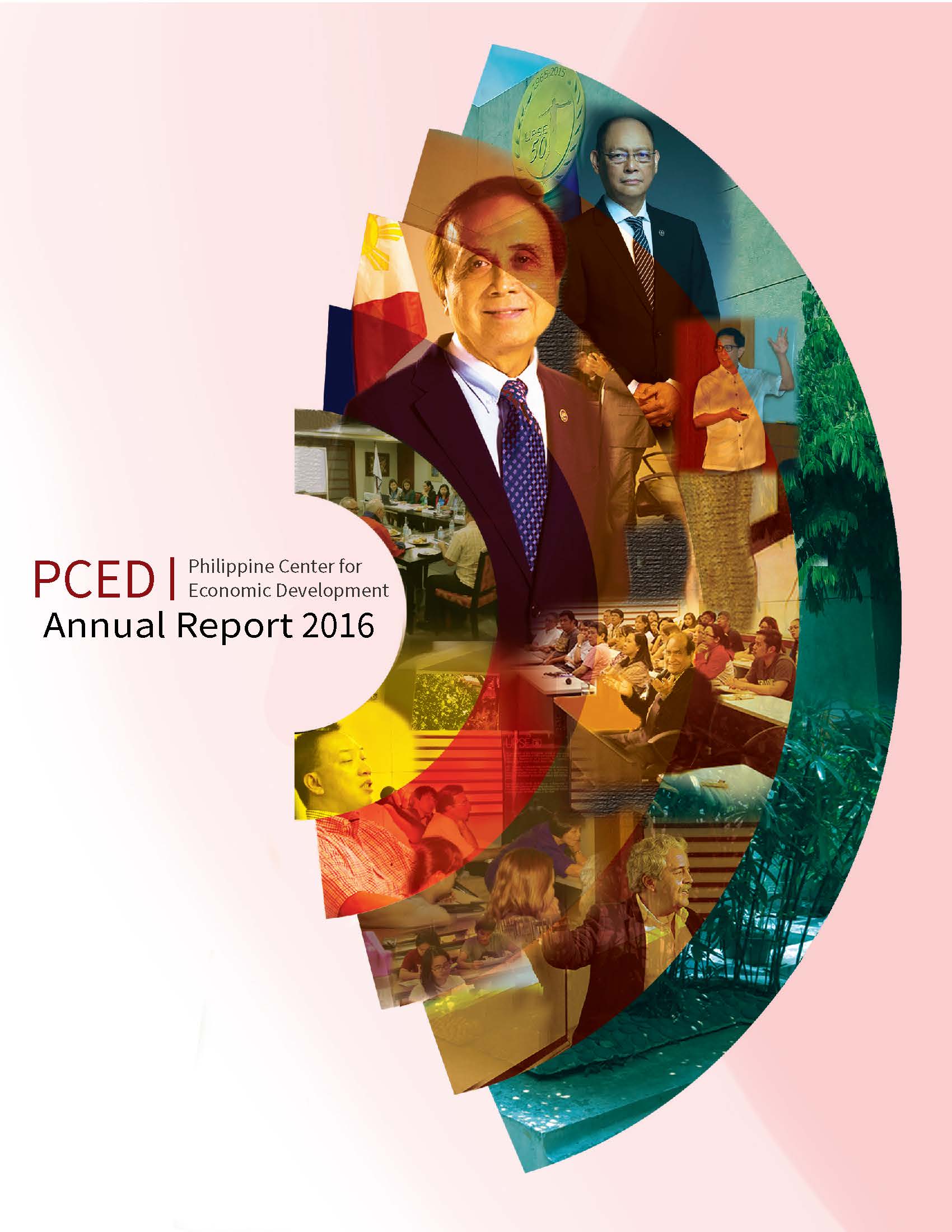 2016 Annual Procurement
2016 Annual Procurement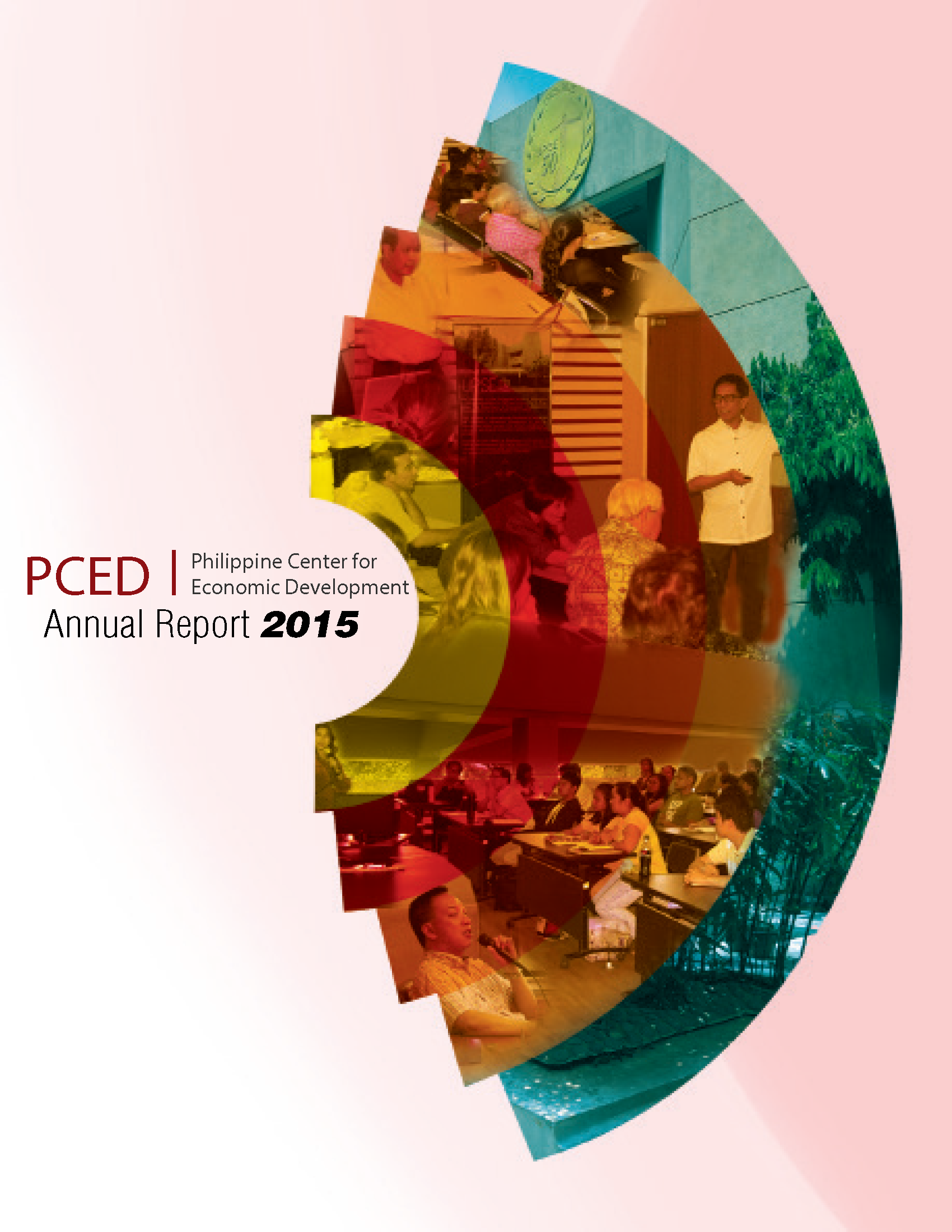 2015 Annual Procurement
2015 Annual Procurement 2014 Annual Procurement
2014 Annual Procurement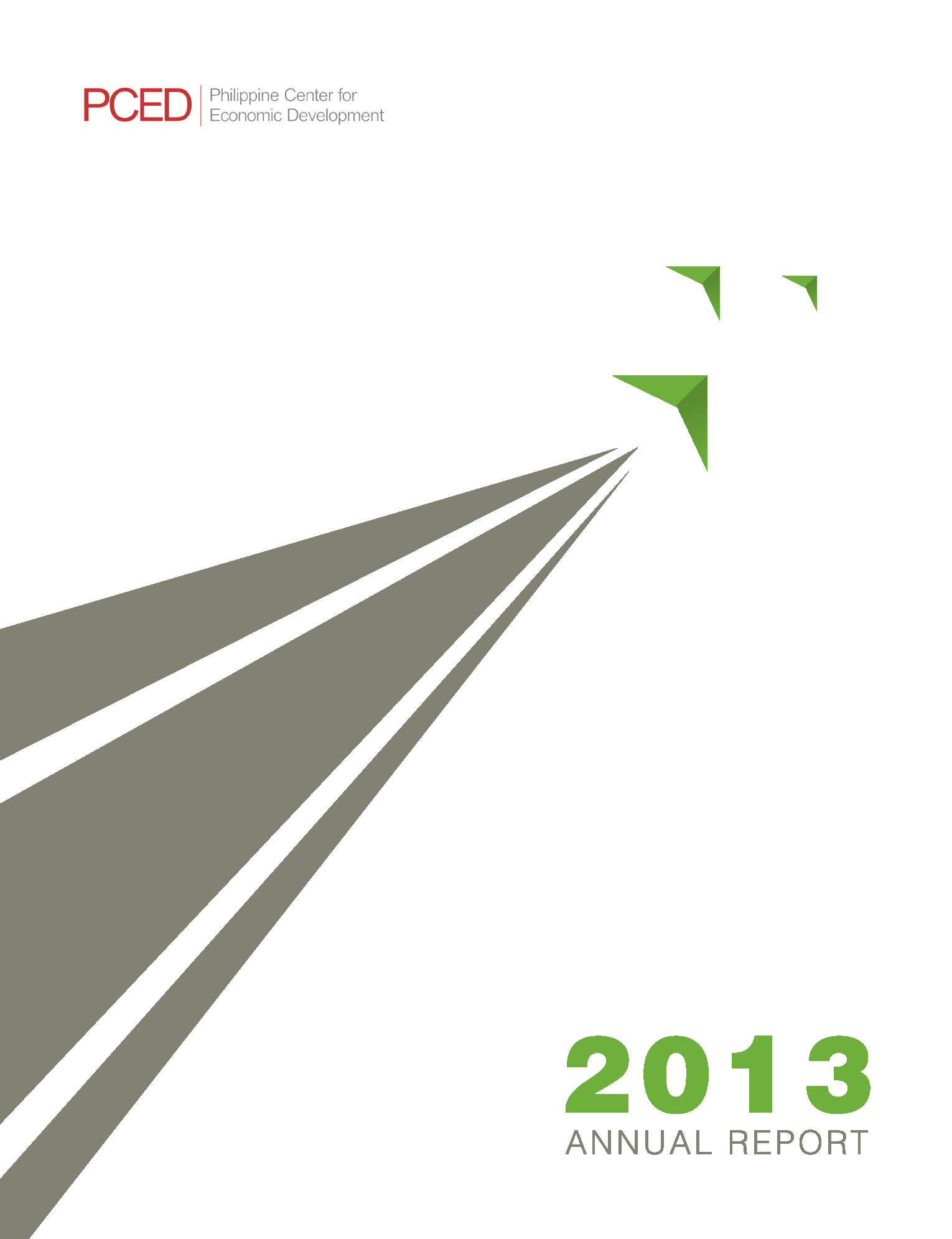 2013 Annual Procurement
2013 Annual Procurement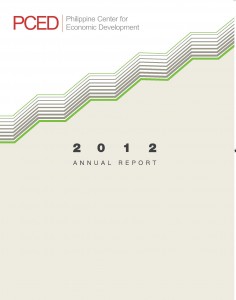 2012 Annual Procurement
2012 Annual Procurement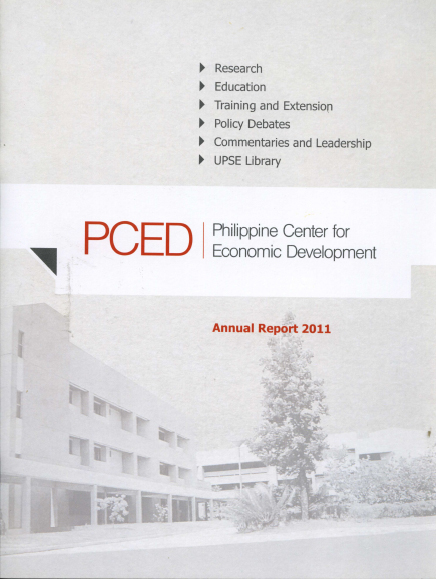 2011 Annual Procurement
2011 Annual Procurement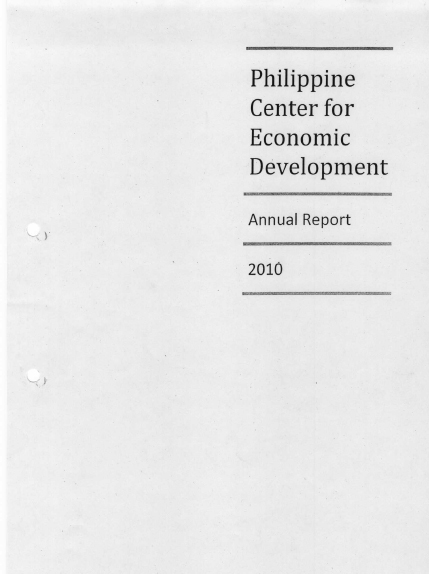 2010 Annual Procurement
2010 Annual Procurement
